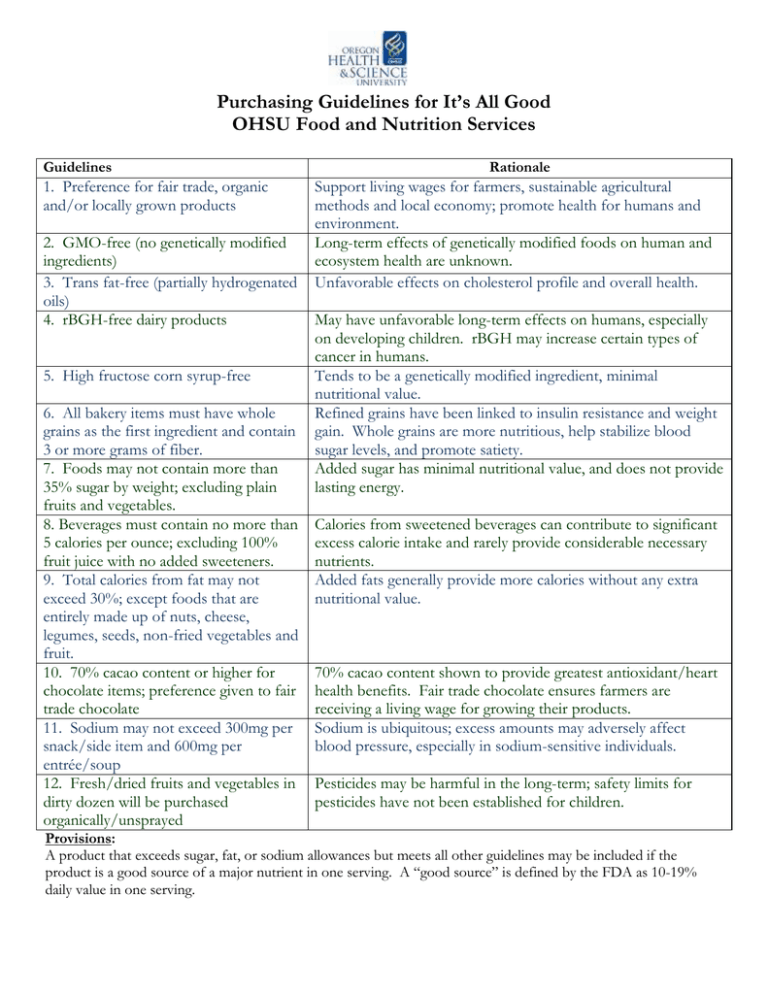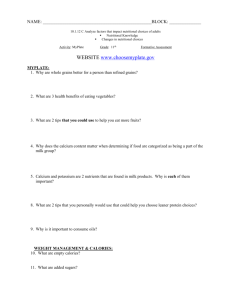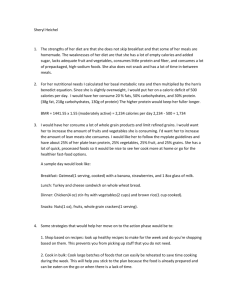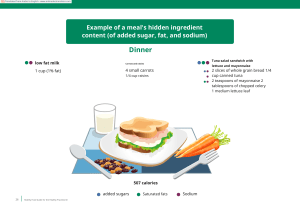Purchasing Guidelines for It’s All Good OHSU Food and Nutrition Services
advertisement

Purchasing Guidelines for It’s All Good OHSU Food and Nutrition Services Guidelines 1. Preference for fair trade, organic and/or locally grown products 2. GMO-free (no genetically modified ingredients) 3. Trans fat-free (partially hydrogenated oils) 4. rBGH-free dairy products 5. High fructose corn syrup-free 6. All bakery items must have whole grains as the first ingredient and contain 3 or more grams of fiber. 7. Foods may not contain more than 35% sugar by weight; excluding plain fruits and vegetables. 8. Beverages must contain no more than 5 calories per ounce; excluding 100% fruit juice with no added sweeteners. 9. Total calories from fat may not exceed 30%; except foods that are entirely made up of nuts, cheese, legumes, seeds, non-fried vegetables and fruit. 10. 70% cacao content or higher for chocolate items; preference given to fair trade chocolate 11. Sodium may not exceed 300mg per snack/side item and 600mg per entrée/soup 12. Fresh/dried fruits and vegetables in dirty dozen will be purchased organically/unsprayed Rationale Support living wages for farmers, sustainable agricultural methods and local economy; promote health for humans and environment. Long-term effects of genetically modified foods on human and ecosystem health are unknown. Unfavorable effects on cholesterol profile and overall health. May have unfavorable long-term effects on humans, especially on developing children. rBGH may increase certain types of cancer in humans. Tends to be a genetically modified ingredient, minimal nutritional value. Refined grains have been linked to insulin resistance and weight gain. Whole grains are more nutritious, help stabilize blood sugar levels, and promote satiety. Added sugar has minimal nutritional value, and does not provide lasting energy. Calories from sweetened beverages can contribute to significant excess calorie intake and rarely provide considerable necessary nutrients. Added fats generally provide more calories without any extra nutritional value. 70% cacao content shown to provide greatest antioxidant/heart health benefits. Fair trade chocolate ensures farmers are receiving a living wage for growing their products. Sodium is ubiquitous; excess amounts may adversely affect blood pressure, especially in sodium-sensitive individuals. Pesticides may be harmful in the long-term; safety limits for pesticides have not been established for children. Provisions: A product that exceeds sugar, fat, or sodium allowances but meets all other guidelines may be included if the product is a good source of a major nutrient in one serving. A “good source” is defined by the FDA as 10-19% daily value in one serving.




